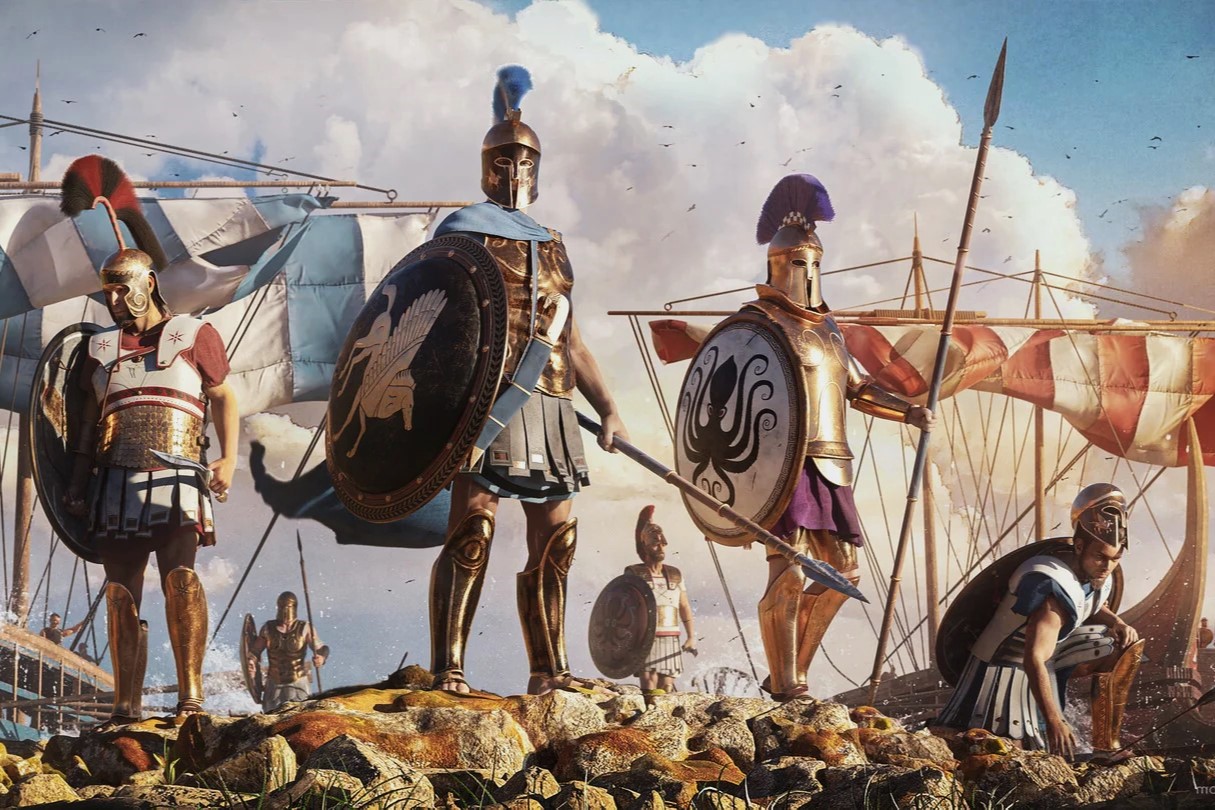
The Lydian-Miletus War was a significant conflict in ancient history, shaping the political landscape of the region. This war, fought between the powerful kingdom of Lydia and the city-state of Miletus, had far-reaching consequences. Why did this war start? The primary reason was the struggle for control over trade routes and regional dominance. Miletus, a wealthy and influential city, posed a threat to Lydia's ambitions. What were the outcomes? The war led to shifts in power, alliances, and territorial boundaries. Understanding this conflict provides insight into the ancient world's dynamics, highlighting the importance of trade, power, and strategy in shaping history.
Key Takeaways:
- The Lydian-Miletus War was a clash between powerful city-states over land, wealth, and influence, shaping the region's politics and leaving a lasting impact on both civilizations.
- The war led to economic disruption, cultural exchange, and technological advancements, influencing future alliances and inspiring myths and legends.
The Lydian-Miletus War: An Ancient Conflict
The Lydian-Miletus War was a significant conflict in ancient history. It involved two powerful city-states, Lydia and Miletus, clashing over territory, resources, and influence. This war shaped the political landscape of the region and left a lasting impact on both civilizations.
Key Players in the War
Understanding the main figures involved helps grasp the war's significance. Here are some essential facts about the key players:
- Lydia was a wealthy kingdom in western Asia Minor, known for its rich deposits of gold and silver.
- Miletus was a prominent Greek city-state famous for its intellectual and cultural achievements.
- King Alyattes ruled Lydia during the war, leading his forces with determination and strategic acumen.
- Thales of Miletus, a pre-Socratic philosopher, lived during this period and contributed to the city's intellectual legacy.
Causes of the Conflict
Several factors led to the outbreak of the Lydian-Miletus War. These causes highlight the complex interplay of politics, economics, and ambition:
- Territorial Disputes: Both Lydia and Miletus sought control over strategic lands and resources.
- Economic Rivalry: The wealth of Lydia and the commercial prowess of Miletus created competition.
- Cultural Differences: The distinct cultures and values of the two city-states fueled tensions.
- Political Ambitions: Leaders from both sides aimed to expand their influence and power.
Major Battles and Strategies
The war saw numerous battles and strategic maneuvers. These events defined the course of the conflict:
- Battle of the Maeander River: A significant clash where Lydian forces attempted to push back the Milesians.
- Siege of Miletus: Lydia laid siege to Miletus, aiming to cut off supplies and force surrender.
- Naval Engagements: Both sides utilized their naval fleets to control sea routes and disrupt trade.
- Guerrilla Tactics: Miletus employed hit-and-run tactics to harass Lydian forces and avoid direct confrontation.
Impact on the Region
The Lydian-Miletus War had far-reaching consequences for the surrounding areas. These impacts shaped the future of the region:
- Economic Disruption: Trade routes were disrupted, affecting commerce and prosperity.
- Cultural Exchange: Despite the conflict, interactions between the two cultures led to exchanges of ideas and knowledge.
- Political Realignments: Alliances shifted as neighboring states reacted to the changing power dynamics.
- Technological Advancements: The war spurred innovations in military technology and tactics.
Notable Figures and Their Contributions
Several individuals played crucial roles during the war. Their actions and decisions influenced the outcome:
- King Alyattes: His leadership and strategic decisions were pivotal for Lydia's efforts.
- Milesian Generals: Commanders from Miletus demonstrated resilience and ingenuity in defending their city.
- Thales of Miletus: Although not directly involved in the war, his philosophical ideas influenced the intellectual climate of the time.
- Lydian Nobles: Key advisors and nobles supported King Alyattes in his military campaigns.
The Aftermath of the War
The conclusion of the Lydian-Miletus War brought significant changes to both city-states. These outcomes shaped their future trajectories:
- Peace Treaty: A treaty was eventually signed, establishing terms for coexistence and trade.
- Economic Recovery: Both Lydia and Miletus focused on rebuilding their economies and restoring prosperity.
- Cultural Renaissance: The end of the war allowed for a resurgence in cultural and intellectual activities.
- Political Stability: The resolution of the conflict brought a period of relative stability to the region.
Legacy of the Lydian-Miletus War
The war left a lasting legacy that influenced subsequent generations. These enduring effects highlight the war's historical significance:
- Historical Records: Ancient historians documented the war, preserving its memory for future generations.
- Myth and Legend: The conflict inspired myths and legends that became part of the cultural heritage.
- Military Lessons: Strategies and tactics from the war were studied and adapted by later military leaders.
- Philosophical Reflections: Thinkers like Thales reflected on the nature of conflict and its impact on society.
Interesting Tidbits
Beyond the major events and figures, the Lydian-Miletus War had intriguing aspects that add depth to its story:
- Gold Coinage: Lydia is credited with inventing the first gold coins, which played a role in funding the war.
- Oracle of Delphi: Both sides sought guidance from the Oracle of Delphi, reflecting the importance of religion in their decisions.
Final Thoughts on the Lydian-Miletus War
The Lydian-Miletus War stands as a significant chapter in ancient history. This conflict, driven by territorial ambitions and economic interests, shaped the political landscape of the region. The war highlighted the strategic importance of Miletus and its influence on trade routes. It also underscored the military prowess of the Lydians under King Alyattes. Despite the eventual fall of Miletus, the war left a lasting impact on both civilizations, influencing their cultural and economic development. Understanding these historical events provides valuable insights into the complexities of ancient warfare and diplomacy. The legacy of the Lydian-Miletus War continues to be a subject of fascination for historians and enthusiasts alike, reminding us of the enduring nature of human conflict and cooperation.
Frequently Asked Questions
Was this page helpful?
Our commitment to delivering trustworthy and engaging content is at the heart of what we do. Each fact on our site is contributed by real users like you, bringing a wealth of diverse insights and information. To ensure the highest standards of accuracy and reliability, our dedicated editors meticulously review each submission. This process guarantees that the facts we share are not only fascinating but also credible. Trust in our commitment to quality and authenticity as you explore and learn with us.


